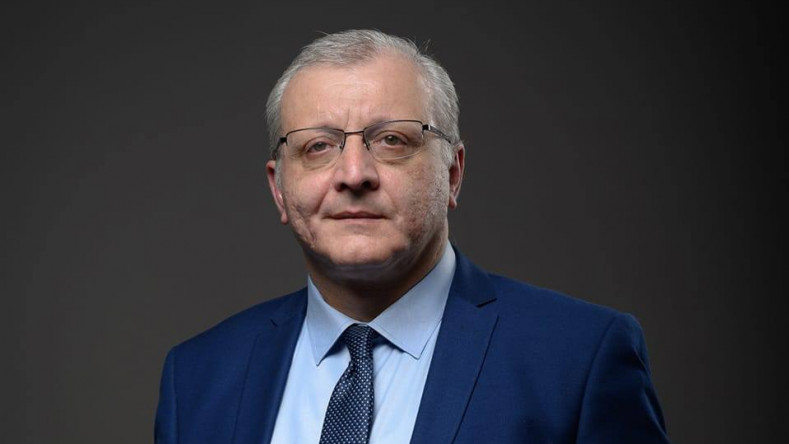
Analyst: Armenian FM’s statements hinted at increasing risks of fresh border escalation
Armenian Foreign Minister Ararat Mirzoyan's remarks at Tuesday’s news conference hinted at increasing risks of a new escalation on the Armenian-Azerbaijani border due to the authorities’ policy failures, political analyst Suren Surenyants claims.
"Ararat Mirzoyan's statements were a kind of confession about the failure of the current authorities’ policies and the increasing risks of a new escalation," he told Panorama.am in an interview on Wednesday.
Speaking at the press conference, Mirzoyan reported regression in the peace process following Azerbaijani President Ilham Aliyev’s latest interview and Baku’s submission of the 7th package of proposals to Yerevan regarding the bilateral peace treaty.
"As a result of Aliyev's aggressive policy and Nikol Pashinyan's diplomatic fiasco, the process has reached a point where Armenia has to either make unilateral concessions or face a risk of new escalation, as Ararat Mirzoyan made it clear," Surenyants pointed out.
He deplored many statements made by Mirzoyan at the press conference as “problematic”, including his remark about the minefield maps. In 2022 Nikol Pashinyan said that all maps of minefields at Armenia’s disposal had been handed over to Azerbaijan. Whereas Mirzoyan said that Armenia could deliver new maps of minefields to Azerbaijan if "a climate of trust is created and the international community is involved”, without referring to Armenian prisoners held by Baku.
"I hope the authorities will find the courage to acknowledge their diplomatic failure. Why has the process reached this point? It didn't happen overnight or in a month. Since the beginning of 2022, Armenia’s authorities have been guided by a vision put forward by Nikol Pashinyan that Armenia and Azerbaijan allegedly had a common interest in squeezing Russia out of the region. He presented the peace treaty in accordance with this vision. All of Nikol Pashinyan's calculations turned out to be wrong, leading to a deadlock in diplomacy. Figuratively speaking, Aliyev sold the Prague document out to Russia, and we find ourselves in a situation where we have to deal with the document of 9 November 2020, but without Nagorno-Karabakh," Surenyants stated.
In the current situation, the political analyst stresses the need to diversify Armenia’s foreign policy, adding Nikol Pashinyan's government policy “has nothing to do with diversification.”
"He is looking for saviors in the West at the expense of downgrading relations with Russia. But they will not be found, while Armenian-Russian relations will find themselves or have already found themselves in a tough situation," he said, insisting on efforts to mend Armenian-Russian relations, launch dialogue with Turkey and effective work with Iran.
Newsfeed
Videos






























